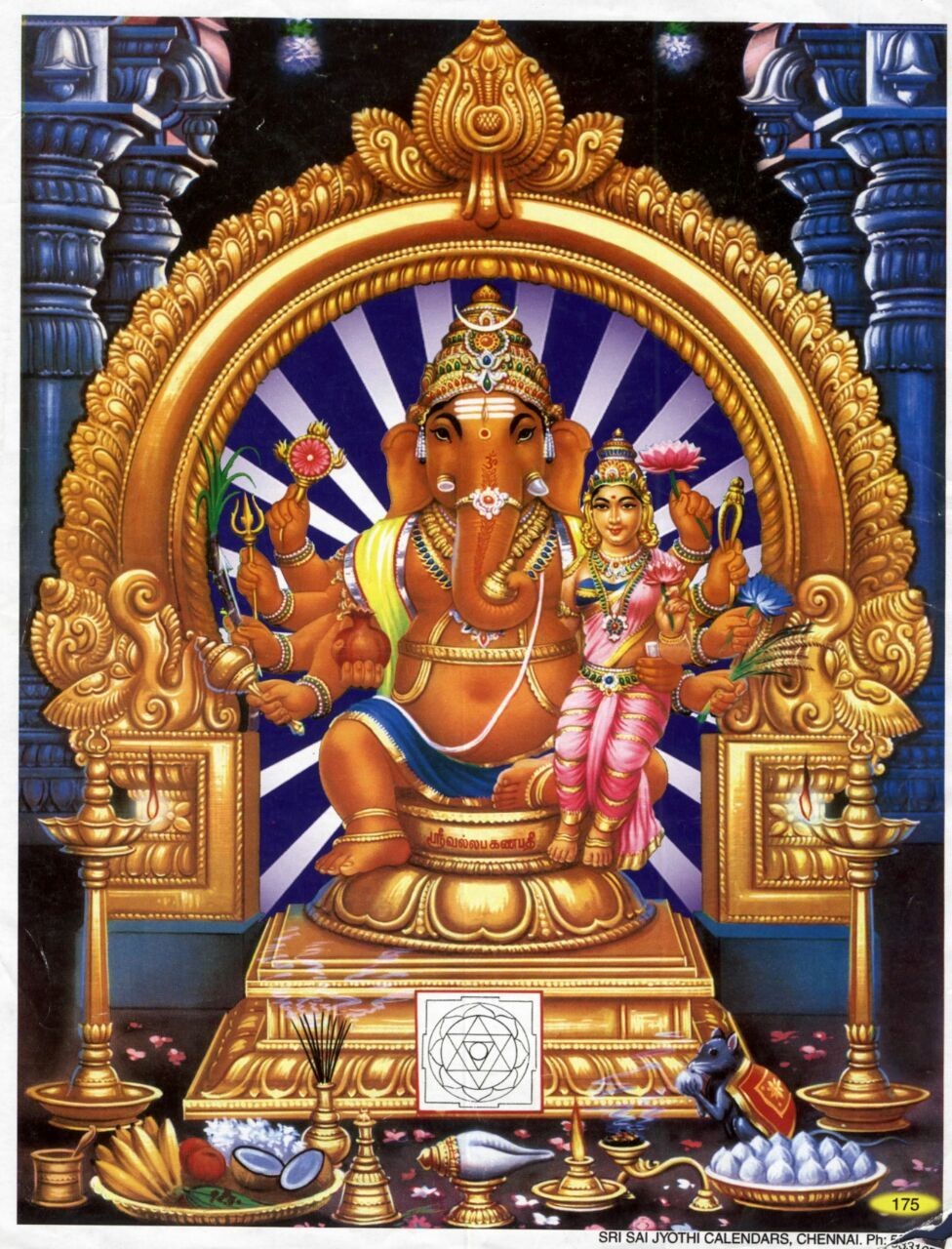
oṃ gaṇānāṃ tvā gaṇapatigm havāmahe
kaviṃ kavīnām upamaśravas tamam
jyeṣṭharājaṃ brahmaṇāṃ brahmaṇaspata
ā naḥ śṛṇvan ūtibhiḥ sīda sādanam
śrī mahā gaṇadipataye namaḥ
There are different sets of objects in this world, and different sets of knowledge about each of them. Gaṇapati controls all of these groups.
The word gaṇa means group. So we say, “We offer our homage to you in the form of ghee oblations. You are the leader of groups, all the groups that form this world.” Among these groups are the ones that create our limitations. They are related to our security center, the Mūlādhāra Chakra. To all those groups of entities that tend to limit us—our fears, anxieties, neuroses, lust, greed, and all these things—we offer our oblations. We say, ā naḥ śṛṇvan, “Please come and listen to us,” and sīda sādanam, “and please give us your grace.”
When you offer homage to the lord of these groups—the one who governs all of the negativities that control your day-to-day interactions, behavioral patterns and programming—you become a kavi, a poet. Poetry comes more from the heart than the intellect. It transcends rationality—that is its beauty and goodness. It can transcend the limitations of rational thought, and thus express the transcendent, which cannot be confined to rational explanations.
There is a saying in Telugu: “If the poet cannot see, then how can the sun see?” This suggests that the poet’s penetration into the truth is far superior to the Earth’s penetration by the sun’s light. You become a poet by understanding your own true nature. The nice thing about this is that the poet is able to look at everything, the good and the bad, and find the humor of the situation in a dispassionate way. He does not decry or praise one thing or the other. He sees things as they are, in their true perspective.
Ganesh is the jyeṣṭharājā, the first one to be worshiped because he is the one who creates the obstacles for you and your growth—in the form of fear, sensations and so forth. And so he is the starting point. You’ve first got to offer your oblations to him, be with him, understand his nature and become humorous about it. When you find that you cannot change the world because it is corrupt, you have to laugh it off and that’s it. Otherwise, you will be weighed down by all the worries and anxieties of the world as a result of your good intentions. Humor is the last resort of compassion.
Suppose you’ve traveled to someplace 20 miles from home, and now it’s time for the return trip. But bus after bus comes and they’re all full; you just can’t get a place. Finally, the last bus arrives. You struggle to get in—but you simply can’t fit.
Your last hope is extinguished. What happens now? Well, what else can you do? You start singing a happy tune—and you walk the 20 miles back home! You get a second breath of life, rising from the deepest depths of your frustration and anxiety. Compassionate humor comes to you once you accept the inevitability of the way things are. That’s when you are invoking Lord Ganesh!
Excerpt from: "Gifts from the Goddess"
